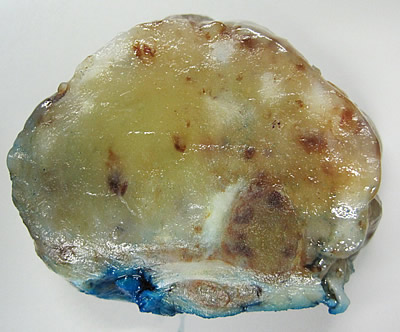Teaching.
 HEE YH is committed to developing and maintaining a high quality postgraduate training programme for both general and higher professional training which conforms to the curricula and quality standards defined by the College. At local level, the Training Programme Director, together with College/Specialty Tutors work with Directors of Medical Education in supervising these programmes.
HEE YH is committed to developing and maintaining a high quality postgraduate training programme for both general and higher professional training which conforms to the curricula and quality standards defined by the College. At local level, the Training Programme Director, together with College/Specialty Tutors work with Directors of Medical Education in supervising these programmes.
There is a continuous programme of formal and informal postgraduate education. The programme provides training in all aspects of Histopathology. All trainees have some training exposure in forensic pathology, paediatric pathology and neuropathology; for those with particular interest, this exposure can be varied accordingly.
Trainees will be expected to take part in these programmes (including audit) and to attend professional reviews. Study Leave will form part of these educational programmes and will be arranged in conjunction with the Training Programme Director.
The programme follows the new curriculum outlined on the Royal College website.
FRCPath course
An educational day is delivered bi-weekly with invited speakers (internal & external) who are acknowledged experts in their field. The course is planned around the RCPathologist’s Curriculum and requirements for FRCPath Examinations. This is during university term times with breaks during Christmas, Easter & Summer holiday periods.
This system based training aims to cover the entire syllabus every 3 years. Practical skills and slide based materials are also supported. Management & leadership topics will be included shortly. Training days aim to offer a mix of some didactic lectures, slide viewing and interactive discussions.
Registrar teaching
Registrar-led teaching takes place as part of formal teaching, where the trainees identify topics and present material to their colleagues.
Daily teaching
This is the mainstay of all teaching, being on a one:one basis at the microscope or in the autopsy room. Cases are normally examined by trainees with their analysis and conclusions being presented to trainers. In effect, every case becomes a teaching opportunity. This allows for all cases to be undertaken as WBAs and exam preparation. This process also allows trainees to complete their portfolios and to judge when they should be taking their exams.
Audit
Audits are undertaken by trainees as per Trust guidelines. Trainees are encouraged to present work at the local, regional audit meetings and/or national meetings.
Study Leave
Study leave is available for external training courses and meetings and approved by the TPD.
Research
The appointee will be encouraged to pursue a research interest within the discipline. Excellent facilities which include immunohistological methods are available. Additional facilities for quantitative histology and molecular biology are available at the Royal Hallamshire Hospital in liaison with the University. At Leeds University there a number of active research groups, many based in the Leeds Institute of Molecular Medicine (LIMM). There are also a number of formal training opportunities for those who wish to pursue academic training, including an opportunity to take time out of programme to study for PhD.
Regional Education Committee and Laboratory representation
Trainees are represented on the Histopathology Management Group, Histopathology Training Committee and also Laboratory Medicine Directorate. In the West and East rotation there are a number of opportunities for trainees to input into training including the trainees committee, and representation on the specialist training committee.